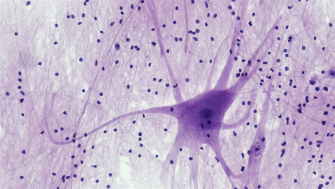What happens between availability and approval of medicines?
Last updated: 01 November 2019

You can legally access new medicines, even if they are not approved in your country.
Learn howWhen a medicine is approved in a region, it doesn’t mean it is available in every country. There are steps between approval and availability that can delay access to medicines for people in different countries.
As an example, the new migraine injection erenumab (Aimovig) was approved by the European Commission on the 30th of July. But will it be available in all European countries, and countries outside of Europe? And if not, why? Here’s an overview of why approval doesn’t necessarily mean availability and what you can do if a medicine is approved, but not available in your country.
Availability at a national level
If approval is granted for a new medicine, the applicant (meaning whomever applied for the medicine to be approved) receives what is known as ‘marketing authorisation’. The applicant can then introduce the medicine to the market and start discussions with bodies like healthcare providers.
The countries in which they choose to market and make the medicine available, however, are selected according to priority and potential. And there is no global, harmonised system to ensure that new medicines are accessible as quickly as possible.
Once specific countries have been chosen to introduce the medicine, there are additional processes to be completed at a national level. This includes detailed plans to distribute and promote the medicine within that country.
Pricing must be negotiated and confirmed with local stakeholders. This varies from country to country, and there’s no guarantee that the price of a medicine in one country will be the same in another. In some countries, medicines are reimbursed, and government decisions about reimbursement can be time-consuming, further delaying market access.
The time from approval to first sales within a certain country within the EU can range from 3 months (in Germany, for example) to 24 months (in Greece) on average (QMS Quintiles Consulting Pricing and Market Access Outlook 2017 Edition). Countries outside of the EU may take even longer to bring the new medicines to market.
Are all medicines eventually available in all countries?
Many people don’t realise that many medicines are never made available globally. This happens because the country is not a priority for the applicant or the government cannot afford the cost of treatment. This is in spite of the fact that there may be patients within these countries who need the medicines.
To use erenumab (Aimovig) as an example: this medicine is approved by the Food and Drug Administration (FDA) and the European Commission (EC) but is not yet available to patients across Europe, at a national level. Now the process of introducing Aimovig (erenumab) at a national level begins, however there is no predetermined deadline for availability that is enforced.
How can you get access to elsewhere-approved medicines?
everyone.org exists to solve this problem. Our team of pharmacists and experts sources medicines from the licensed suppliers and delivers them to patients (in partnership with a pharmacy) at a fixed price. This service applies to countries where the medicine is not approved or available. Once a medicine is available, we cannot service people in that country, and they can make use of the normal distribution means (e.g. local hospitals or pharmacies).
To find out more about how you can make use of this access, you can contact our support team here.
How does application for approval work?
To go back a few steps: after a medicine has undergone clinical trials, the manufacturer or patent holder decides the markets in which they will file an application for approval. This application is filed with a 'dossier’ of scientific information on quality, efficacy and safety. The governing body for the territory in which they file an application could be, for example, The Committee for Medicinal Products for Human Use (CHMP) which acts on behalf of the European Medicines Agency. It could also be The U.S. Food and Drug Administration or the Therapeutic Goods Association in Australia.
The application is reviewed and if the necessary criteria are matched, the approval may be given. This is a complex system and one that involves much review and balance of clinical data.
A way forward
The way medicines are distributed around the world may be challenging for people who aren’t experts in the field. There is much legislation and bureaucracy that is difficult to understand — but our team is here to help. You can contact our team here with any questions you have about elsewhere approved but unavailable medicines




